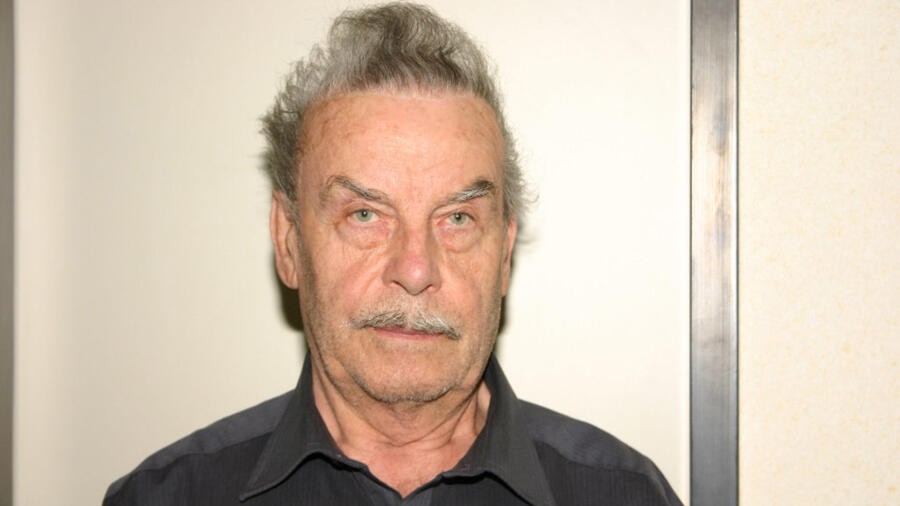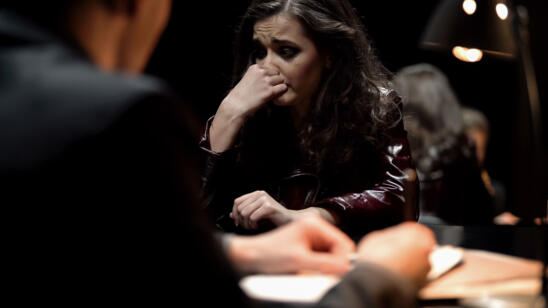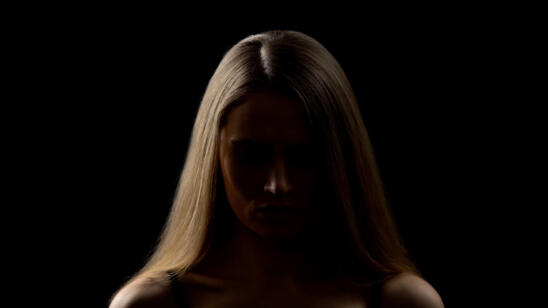The following content contains disturbing accounts of violence and sexual violence. Discretion is advised.
Josef Fritzl started building the dungeon in the 1970s—a vast cellar complex below his family’s home in the quiet village of Amstetten in Central Austria. Then, on a hot day in August 1984, he asked his daughter Elisabeth Fritzl, 18, to help him install the cellar door. But before she could leave, he held an ether-soaked rag over her mouth, rendering her unconscious.
For 24 years, Josef imprisoned Elisabeth in that windowless basement. When she finally emerged in 2008, the story of his sadism shocked the world.
Josef Fritzl’s Crimes
Josef told his wife (and Elisabeth’s mother) Rosemarie that their daughter had run away from home. Down in the dungeon, he forced Elisabeth to write Rosemarie letters, which he would mail home from post offices around the country.
He also began raping her almost immediately after her imprisonment. He used a series of chains and restraints to control her movement and had sex with her against her will thousands of times over more than two decades.
David Finkelhor, a professor of Sociology at the University of New Hampshire and the Director of the Crimes Against Children Research Center, says that cases of family imprisonment cases “fall into three of four buckets.”
Some of those motivations, such as strong paranoia about the outside world and a sectarian religious ideology, don’t apply in the Fritzl case. Finkelhor tells A&E True Crime Josef Fritzl was most likely motivated by a desire to impose “sexual slavery…where somebody is really looking for sexual gratification on a regular basis, and is not going to be able to get it in a usual consensual way.”
That sexual slavery carried long-term consequences that ultimately exposed the crime.
Elisabeth conceived seven children during that time. One died three days after birth; Josef incinerated his remains in the basement furnace. Of the remaining six, Josef took three upstairs and left them on the family doorstep, claiming that Elisabeth had dropped them off. They were raised by Rosemarie. The other three remained in the dungeon.
In April 2008, one of the three downstairs children—Kerstin, 19 years old—became seriously ill. Josef drove her to the hospital, where doctors became suspicious about how the young woman could be in such terrible shape. Appeals for the mother to come forward were broadcast via the media, and when Josef finally allowed Elisabeth to speak with authorities, she told them everything.
The Making of a Monster Father
In some ways, Josef Fritzl’s criminal behavior was the repetition of family history: His grandfather was married to a woman who couldn’t conceive children. Because of this, the grandfather would have affairs with other women, then would coerce his wife into adopting the children they bore.
Josef’s mother was one of those children, whom a trial lawyer described as unloving and sadistic.
Finkelhor says ‘it’s common that child abusers have often suffered child abuse.
“It’s just a general rule that people who mistreat other people have often been mistreated in various ways themselves,” he says. “It’s not a 100 percent correlation, but it’s high.”
The Fritzl Trial
After his arrest (but prior to his trial), Josef confessed to the repeated rapes, claiming that the rape of his daughter was an addiction, and the redirection of incestuous feelings he felt towards his own mother. He also claimed to be a loving attentive father to the children he sired in the basement: bringing them books and stuffed animals, watching videos with the children, eating dinner with the family.
At trial, the father admitted guilt on an incest charge, but pled innocent to enslavement and to the murder of his child. After he saw Elisabeth Fritzl’s taped testimony, he changed his plea to full guilt, acknowledging that his failure to secure medical care for the newborn may have directly contributed to the death.
For his crimes, Fritzl was found guilty on all counts: negligent murder, enslavement, incest, rape, coercion and false imprisonment. He was sentenced to life imprisonment in 2009.
He has been in solitary confinement in Austria’s high-security psychiatric prison, Krems-Stein since that time. According to Austrian media, he now suffers from dementia, and none of his family has visited during his decade behind bars.
In May 2023 The Guardian reported that Fritzl has co-written a memoir with his lawyer, Astrid Wagner. In the book, titled “The Abysses of Josef F,” Fritzl says he hopes to one day reconcile with his family.
What Is Elisabeth Fritzl’s Life Like Now?
In the years since her release from the basement (and her father’s subsequent trial), Elisabeth Fritzl has moved to a remote village whose name has been kept out of the press. Most details of her current life remain secret.
Survivors of such kidnappings often struggle to form intimate relationships afterwards, says Geoffrey Greif, a professor of social work at the University of Maryland whose book When Parents Kidnap explores the emotional trauma of parental child abduction.
“How do you form an adult intimate relationship after the people who are supposed to protect you have done so many things to you?” Greif asks. “And if you have a child, how comfortable do you feel leaving your child with a babysitter? Or your spouse?”
But there are some signs that Elisabeth is piecing her life together. According to British tabloids, the 54-year-old is in a serious romantic relationship with a man 23 years younger than her, whom she met when he was assigned to be her bodyguard.
Update 2024
According to Austrian public broadcaster ORF, Fritzl, who is currently 88 and has dementia, may be moved out a high-security prison and into a regular prison or may be given a conditional release. Fritzl is eligible for parole this year. In 2022, a regional court in Austria ruled Fritzl was “no longer a danger.”
Related Features:
Elizabeth Shoaf Was Kidnapped and Assaulted Inside a Bunker for 10 Days: How the Teen Escaped
What Drives Some People to Kidnap Children?
The Kidnapping and Torture of Mary Stauffer
Cleveland Kidnapping Survivor Michelle Knight: Healing After 11 Years in Hell


